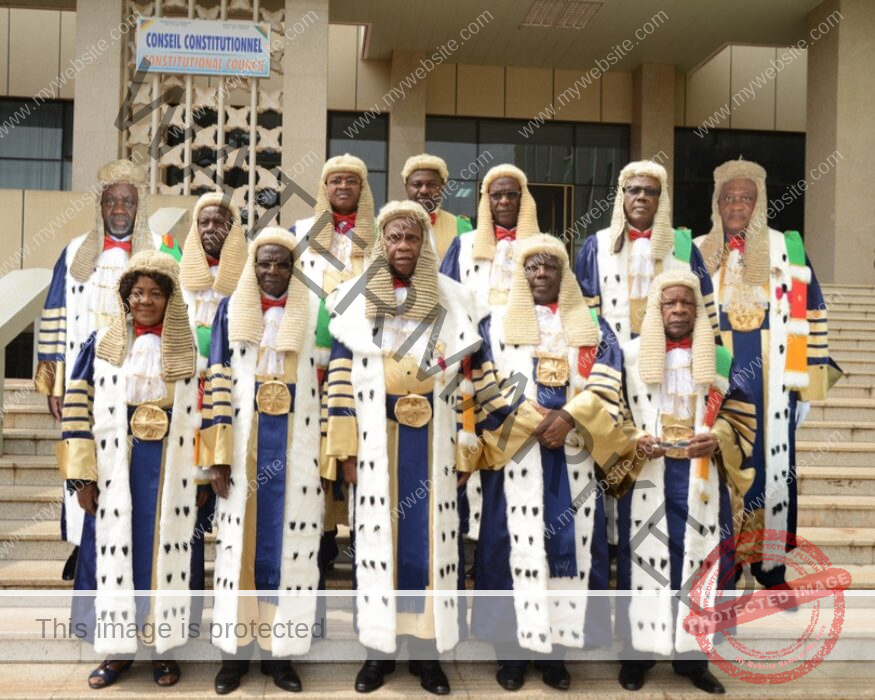This weaponization of security and justice is not merely authoritarian—it is suicidal. When citizens lose faith in the institutions meant to protect them, they turn to their own devices. In Cameroon, that means militias, vigilante groups, and mobs sprouting in the shadows of state decay. Each new act of repression creates another nucleus of resistance; each unjust imprisonment plants a seed of vengeance.
By Christopher Fon Achobang for The Independentist
In Cameroon today, security and justice—two of the most sacred pillars of statehood—have been stripped of their moral compass and turned into tools of fear and control. Under President Paul Biya’s forty-three-year rule, they no longer serve the citizenry; they defend the survival of a regime increasingly detached from the realities of its people. What was once a fragile democracy has metastasized into a security state where justice is dispensed according to loyalty, not law.
Courtrooms Turned into Theatres of Intimidation
Across the country, from the restive Anglophone regions to the politically charged heartlands of the Centre and South, citizens are discovering that the courtroom and the police station are no longer houses of justice, but theatres of intimidation. Dissidents are branded as terrorists, journalists as traitors, and activists as enemies of the state. The judiciary, once meant to check the excesses of power, has been reduced to an echo chamber for executive decrees. Even traditional rulers and clergy who dare to question the system are threatened, silenced, or co-opted.
A Regime at War with Its Own People
This weaponization of security and justice is not merely authoritarian—it is suicidal. When citizens lose faith in the institutions meant to protect them, they turn to their own devices. In Cameroon, that means militias, vigilante groups, and mobs sprouting in the shadows of state decay. Each new act of repression creates another nucleus of resistance; each unjust imprisonment plants a seed of vengeance.
“Mon Justice” — When Despair Becomes Retribution
“Mon Justice,” private or mob justice, has become both a cry of despair and a symptom of a broken state. When people can no longer find fairness in the courts or safety in the police, they take up machetes, guns, and grudges. This is how civil wars are born—not from ideology, but from injustice.
The Cracks in Biya’s Fortress
The Biya regime, by suffocating lawful dissent and criminalizing opposition, is unknowingly nurturing its own undoing. No government, no matter how entrenched, can survive indefinitely on fear and coercion. The cracks are already visible: security forces stretched thin, regions slipping out of control, and growing resentment even within the ruling party itself. What was once a tightly controlled state apparatus is now a cauldron of confusion, corruption, and quiet rebellion.
Lessons from the Sahel — Breaking the Chains of Françafrique
Ironically, this disintegration could mark the beginning of something profoundly transformative. Across Africa’s Sahel, nations once shackled by neo-colonial influence—Mali, Burkina Faso, Niger—are reasserting their sovereignty. Their break from French political and military tutelage may be chaotic, but it is also cathartic. Cameroon, still under the long shadow of Françafrique, stands at a similar crossroads. The regime’s collapse, should it occur, might unleash turmoil, but it could also open the path toward genuine independence—not merely from foreign dominance, but from the internal tyranny that has stifled its people for decades.
France’s Complicity and the Silence of the West
The international community must not look away. Western governments, particularly France, bear a historical and moral responsibility for enabling the Biya system through diplomatic indulgence and economic complicity. Their silence in the face of repression has emboldened a regime that now threatens the very stability they claim to safeguard.
Justice That Protects, Not Persecutes
Cameroon does not need foreign troops or token reforms. It needs justice that is blind, not biased; security that protects, not persecutes. Until those principles are restored, the country will continue to bleed—quietly for now, violently tomorrow.
The People’s Revenge — When Justice Becomes a Weapon
If history teaches anything, it is that when justice becomes a weapon, the oppressed eventually forge their own arms. Cameroon’s descent into militia rule would not be a tragedy of fate, but of deliberate political choice. The Biya regime still has time to reverse course—but not much. Once people decide to reclaim justice for themselves, no army, no judge, no decree can stop them.
The “Moulinex” Machinery of Repression
Since 2018, a troubling practice known as “moulinex” has emerged, by which the Minister of Territorial Administration, Paul Atanga Nji, uses state machinery to crush the opposition. Dozens of Maurice Kamto’s supporters still languish in jail. Today, there are threats to arrest Issa Tchiroma Bakary, the declared winner of the 12 October 2025 presidential poll. Several of his supporters have already been abducted. If President Biya does not respect the will of the people as expressed at the ballot box, tomorrow—27 October 2025—could ignite nationwide chaos.
The Dawn After the Darkness
And when that moment comes, Cameroon’s long night of fear may finally give way to the dawn of true freedom.
Christopher Fon Achobang
Social Justice Campaigner
Rotary Peace Fellow
Trained at Makerere University

